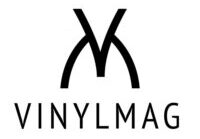If you’ve kept up with the festival circuit at all in the last decade, you have undoubtedly heard of solo instrumentalist Xavier Rudd. The native Australian, through his proficiency in a variety of culturally unique instruments, creates truly impressive albums that blend world music with vocals reminiscent of the artists that have inspired him, such as Ben Harper and Natalie Merchant. Rudd has toured as a solo act for more than a decade and is noted for his eclectic assemblage instruments, including didgeridoos, djembes, organettes, and others as he captivates crowds with his outward-emanating charisma and talent.
With his ninth studio album, Xavier Rudd has pieced together a band under the moniker “The United Nations” composed of nine musicians hailing from various locales around the world in what he deems his “dream project.” The album, Nanna, employs a heavy reggae tone, making it no surprise that it was mixed by Errol Brown, known for his work with Bob Marley. In the lyrics, Rudd blends this reggae with calypso and polyphonic sounds. Strong themes of harmony and togetherness resonate throughout the album to bring about a hopeful dream for what the future may hold if we can all just get along.
Vinyl Mag: The members of The United Nations all have very eclectic heritages as well as musical backgrounds. How did The United Nations come to be, and what effect do you perceive that diversity to have had on the recording process and resulting sound of Nanna?
Xavier Rudd: The UN came together very organically, feels like our ancestors had a cup of tea and decided to put us together. Everybody has a different story and a different background, and when the musical influence of everybody’s stories come together, they created a very eclectic and interesting record.
VM: You seem very connected to your Aboriginal heritage, being proficient in yidaki and other native instruments, and many of your songs seem to promote discussion on the subject. With music being such an integral part of the Aboriginal culture, how do you interpret your connection between that culture and your own music?
XR: Sometimes our ancestors choose music to guide us or challenge us. I feel my music is oftentimes just me holding space for the spirit to come through. I don’t judge this or involve my ego in trying to analyze it. I am content in saying that it’s not for me to know.
VM: There is a very fluid message of togetherness and harmony throughout the album. You seem to have a strong vision for the future. What would you say is the backbone of your philosophy?
XR: Patience. Humans have become very accustomed to a fast paced society that doesn’t resonate with our natural progression in our natural place in creation. Patience has become extra hard for human beings so much so that I think we have almost lost touch with what that really means.
VM: You grew up in a very small town in Australia [Torquay, Victoria >7,000 pop.]. What strikes you as the most notable memory to have stuck with you from growing up in a small town?
XR: Space, time alone, and being in the bush.
VM: Erroll Brown has a quite a musical history in the reggae world, working with notable acts such as Peter Tosh, Rebelution, and the one-and-only Bob Marley. How was the process having him involved in the creation of Nanna? What most drew you to him as a musical engineer?
XR: Erroll’s involvement was very organic also, he appeared at the right place at the right time, and was presented to mix this record. It really was a perfect match.
VM: How does it feel being out in front of the audience instead of playing behind the (super-cool) instrument command-center-set-up you have?
XR: It feels groovy. I am having a great time.
VM: What is next for Xavier Rudd, and what does the future hold for Xavier Rudd and The United Nations?
XR: Not too sure; I don’t plan much of anything really. We will let the spirit guide this amazing project and see where it lands.
Be sure to catch Xavier Rudd and the United Nations playing the Boulevard Stage at Shaky Knees this Sunday at 6:45 p.m.!
From Alabama to Texas, Connor Beitel is the Creative Director at Small Batch Productionsin Austin, TX. In addition to being a writer at Vinyl Mag, Connor helps run an organic audio/video experience for emerging musicians called Small Batch Music Project.


